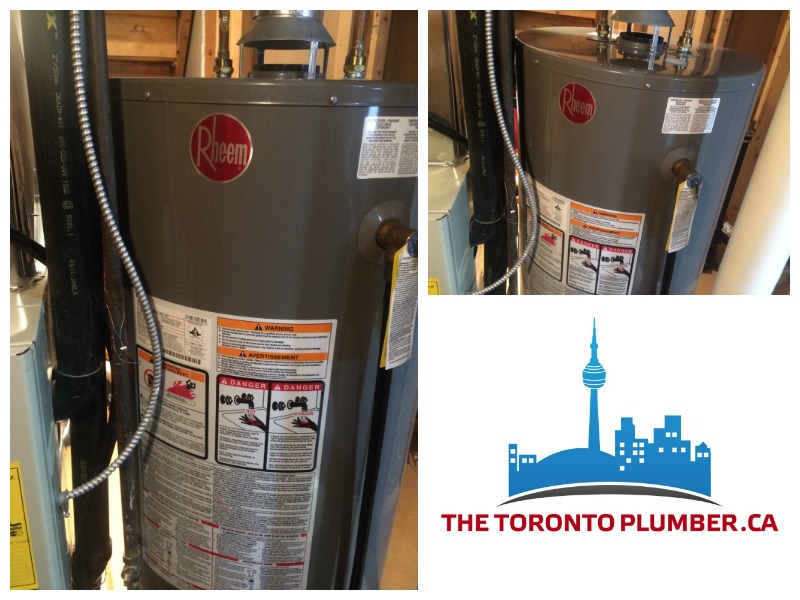How it Works: Water Heater and Common Problems
For starters, what is a “Water Heater”? A Water Heater is essentially a big thermos, a steady supply of cold water is added while the heating element inside warms up the water so that we can enjoy a warm shower or have warm water for everyday needs.
Water Heaters come in three different types. They are, Electricity powered, Gas powered and Propane powered. Electricity and Gas powered water heaters are most common in both residential as well as commercial settings, while the Propane is more for rural areas or cottages. But wait there is more, not only as there are three different power methods for the water heaters there are also two different water heater options available on the market.
Tank Type Water Heaters
The first type being a Tank water heater. This are the true and tried water heaters that been around for many decades they are the most common and are standard in most residential as well as commercial settings. This units physically store water and come in different volume sizes, from 2 to 60 gallons (7.6 to 227 liters). This units are rather inexpensive compared to their alternative Tankless option. A standard Tank water heater will usually last from 6 to 10 or more years depending on few factors, with biggest being water quality and amount of chlorine and calcium in the water.
Tankless Type Water Heaters
The second type is Tankless water heater. This is relatively new technology which has been slowly on the rise with more new homes getting Tankless vs. Tank units. However, one major disadvantage of Tankless is that they do not store water physically like the Tank units, instead the water runs truth internal heating coils and is supplied truth out the water system on-demand. While on-demand is environmentally continuing and friendly as the unit doesn’t reheat the water over and over like the conventional Tanked water heaters, there few other disadvantages that arise. One being that in an event of a power failure you are stuck without hot water as Tankless units do not store hot water, there are expansions tanks available for this units but then they are essentially no different than Standard Tanked water heaters but cost way more. And second problem is that they are new technology, and as with most new technology its pricey and costly to repair vs. old tried and true technology.
Basic Water Heater Problems and Causes
However even tried and true technology that’s a Standard has its exploitation timeframe. As mentioned before most Tank water heater units last between 6 to 10 years, depending on water condition. Because chlorine is added into our water supply to kill off any bacteria that chlorine leads to premature failure of plumbing units and fixtures, from destroying washers to eating away flapper in the toilet tank. In the case of water heater unit’s chlorine slowly eats away the insides of water heater, this usually resolves in poor water pressure in your home or rusty (brown) water coming from plumbing fixtures. The second leading cause of premature water heater failure is calcium. Calcium clogs up the interior of a water heater tank eventually preventing a steady water supply resulting in poor water pressure or no hot water. With that said it’s recommended to replace Water Heater tanks every 5 to 10 years, depending on exploitation conditions. As plumbing professionals, we recommend that if you notice no hot water, poor water pressure or rusty (brown) water that you take needed measures. Ignoring this may result in further expanses as parts of the water heater insulation will end up clogging variety of plumbing fixtures and units which could result in multiple plumbing breakdowns and hundreds of dollars’ worth of repairs, as such it’s better to act before it’s not too late.
Basic Maintains Tips
Here are some basic and easy maintains tips to follow.
- Test Temperature and Pressure relief valve at least once a year.
- Flush the Water Heater at least once a year to flush all internal build up.
That’s it really. You can always go one step further and get a water softener unit, this will get rid of calcium and chlorine problem, not only will it keep your water heater running for years it will also keep your plumbing fixtures and units running for much longer as it would clean water of calcium and chlorine, two things and are very destructive to plumbing and drainage systems.

